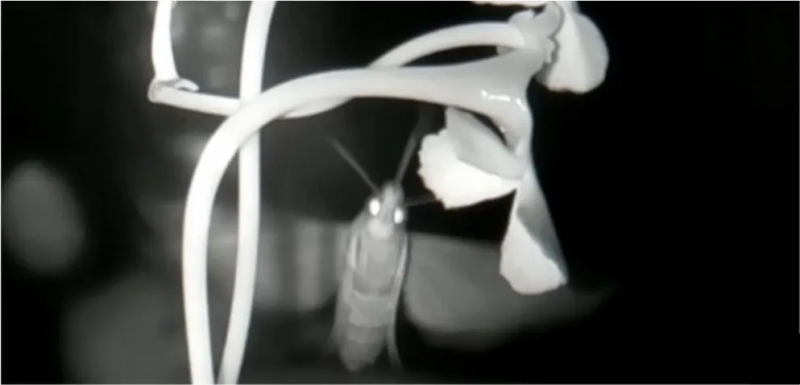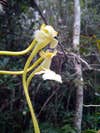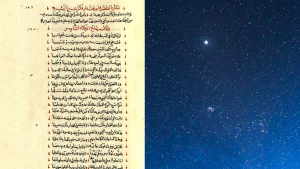‘Spectacular’ new orchid species is pollinated by moths

Despite their reputation for being easy for aspiring plant parents to destroy, orchids can be found all over the planet. There are more than 25,000 known species of these plants, with more discovered every year. An international team of scientists have now found a new species of orchid in Madagascar with an impressive nectar spur and has a tie to Charles Darwin. Solenangis impraedicta is described in a study published March 11 in the journal Current Biology.
[Related: This new species of pink orchid looks like delicate glasswork.]
Madagascar is known for flowers with long floral tubes that are pollinated by long-tongued hawkmoths. The most famous orchid species on the island is Angraecum sesquipedale, which is also called Darwin’s orchid. The famed naturalist and orchid enthusiast had a theory that the flower was pollinated by a moth that was unknown at time. About 41 years after this prediction, scientists officially described the large hawkmoth proving Darwin correct.
The newly discovered species is appropriately named Solenangis impraedicta. In Latin, impraedicta translates to “unpredicted” and is a nod to Darwin’s eventually correct prediction that a specific moth is the orchid’s primary pollinator. The newly discovered orchid has a nectar spur that is almost 13 inches long, despite having petals that are less than one inch. These tube-like projections from a plant’s petals produce and retain nectar for pollinators like bees, butterflies, and moths. Solenangis impraedicta has the third longest spur scientists have ever recorded.
“The contrast between the little 2 centimeter (0.7 inches) flowers and the hyper-long nectar tube is mind-blowing,” study co-author and Coimbra University Botanic Garden botanist João Farminhão said in a statement.

The species with dainty white petals and a yellow-ish stem was first collected by Missouri Botanical Garden field botanist Patrice Antilahimena, during a baseline environmental impact study of a mine site in central eastern Madagascar. A new location of these orchids was discovered about 10 years later by Brigitte Ramandimbisoa and a Ph.D. student at the New York Botanical Garden Simon Verlynde.
It belongs to the angraecoid orchids group also called “Darwin’s pollination guild.” It is currently threatened by mining activities and possibly by poaching for the orchid trade. The authors hope that the discovery will boost conservation efforts.
“Discovering a new orchid species is always an exciting event, but finding such amazing and charismatic species happens only once in a scientist’s career,” study co-author and Missouri Botanical Garden botanist Tariq Stévart said in a statement. “I really hope that this highly threatened species draws attention to the urgent crisis that is affecting Madagascar’s biodiversity and helps support [Missouri Botanical] Garden’s program there.”
[Related: This incredibly rare orchid survives by making male beetles horny.]
The between Solenangis impraedicta’s discovery and its formal scientific description allowed the team to bank some of its seeds and grow them in undisclosed locations to help conserve the plants.
“A precautionary approach is required when publishing such a spectacular new species,” said Stévart. “Wild populations must be protected and monitored and detailed information on their precise coordinates must be kept out of the public domain. So, don’t ask us to reveal where we found it, somewhere in Madagascar.”










